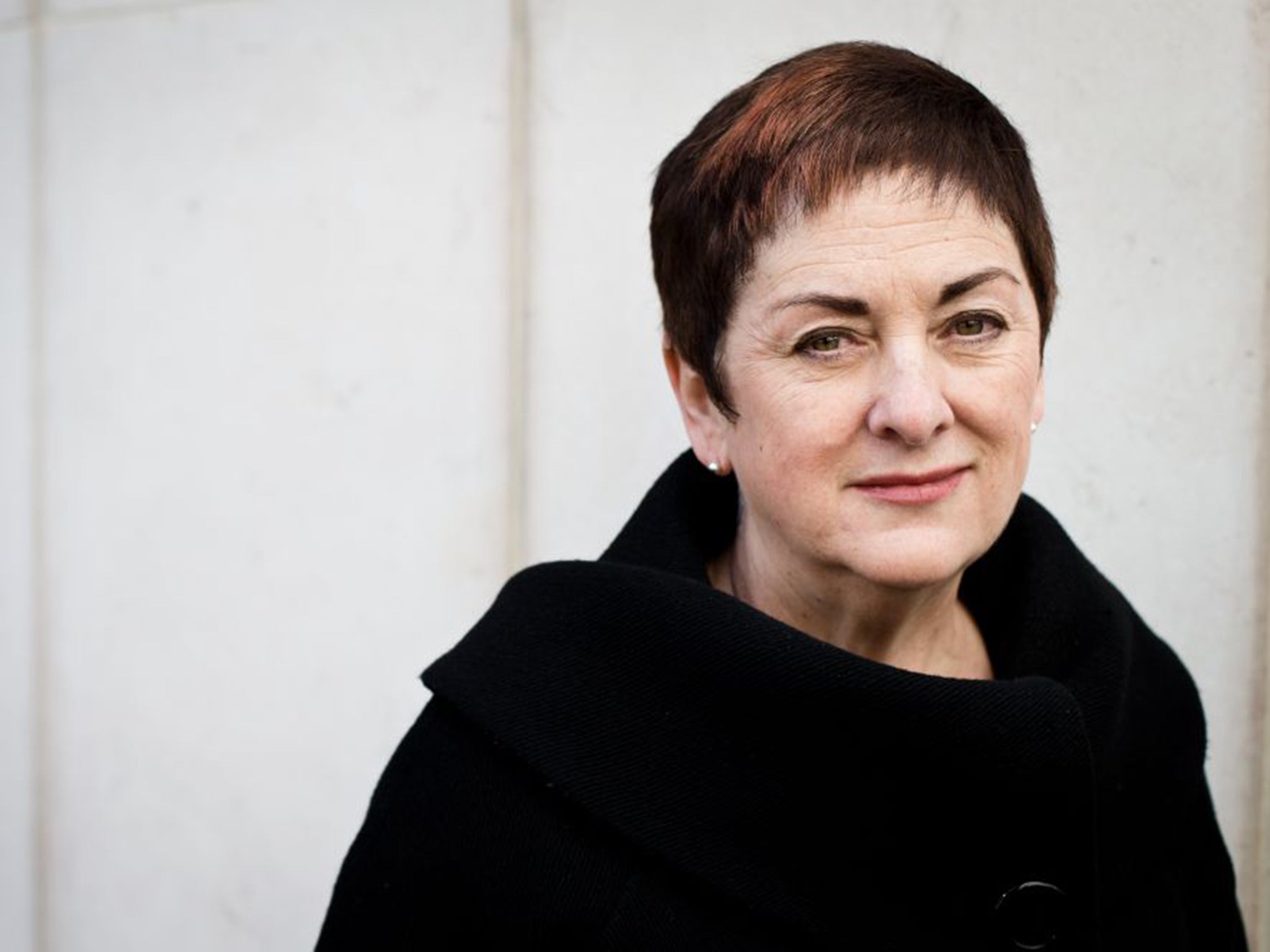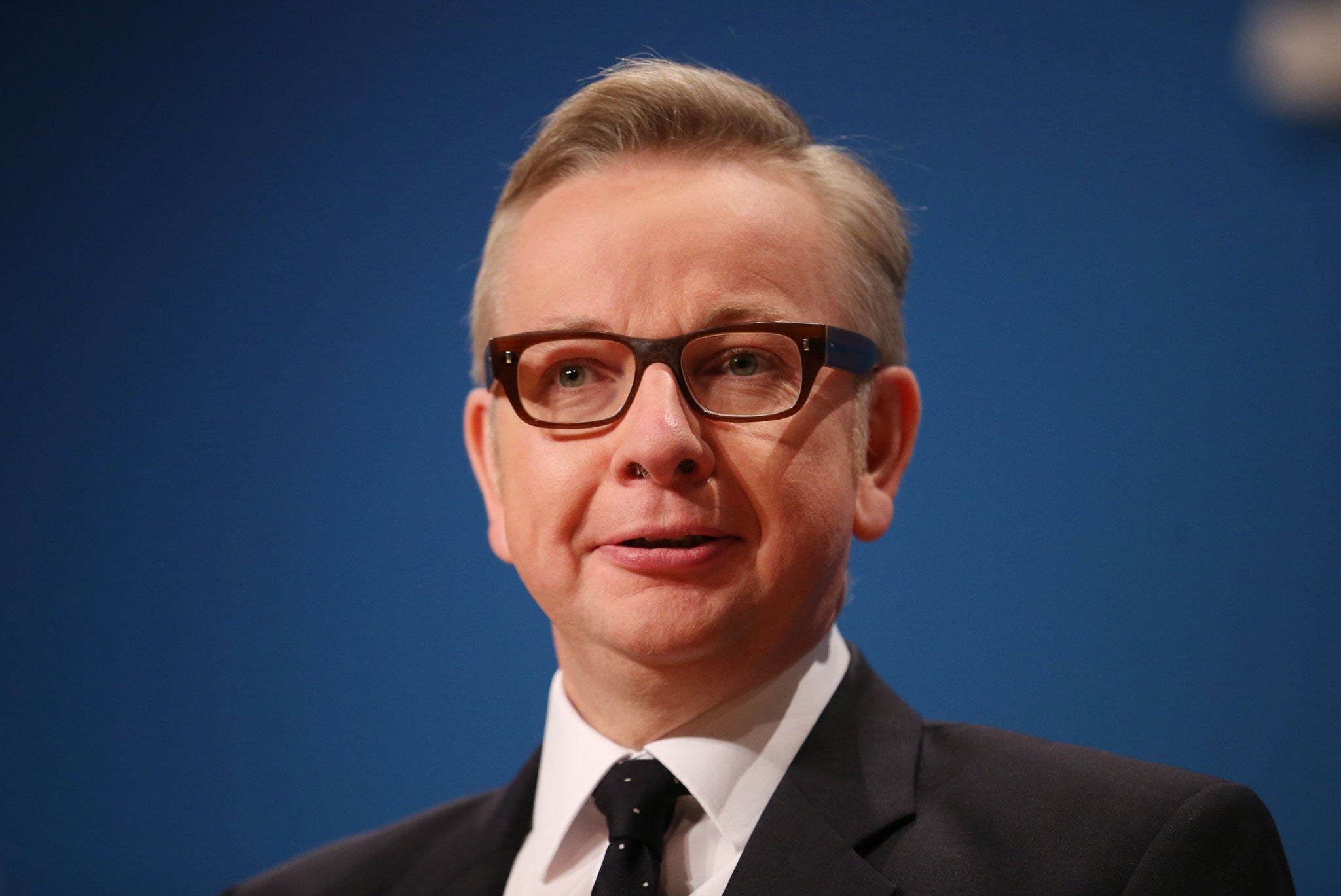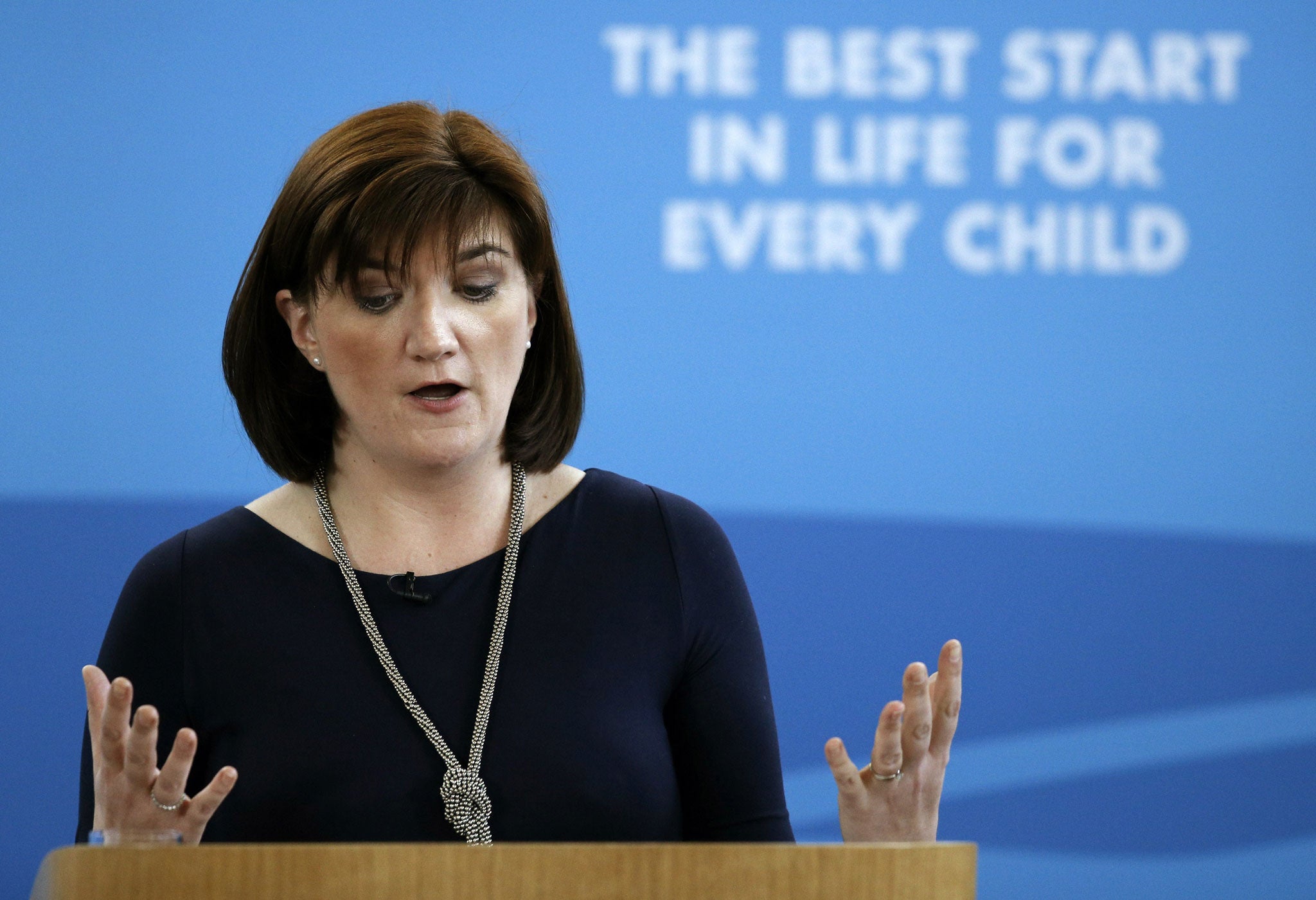Why teachers are so angry: Botched education reforms, increased workload, meddling ministers...you name it!
Even the ATL, the most moderate teaching union, has been on strike twice during the lifetime of this government. Its leader, Mary Bousted, tells Richard Garner what action is needed to defuse the discontent

Mary Bousted will be celebrating her 12th year at the helm of one of the big three teachers' unions as she makes her way to her annual conference this weekend.
Her union, the Association of Teachers and Lecturers (ATL), has often been regarded as the most moderate of the three teachers' unions. Nevertheless, it has engaged in two bouts of industrial action during the lifetime of this Coalition Government – both in protest against cuts to the teachers' pension scheme in 2011.
Whatever you hear from the conference hall in the coming days, though, she insists that industrial action will only be considered as a last resort by the delegates traipsing their way to Liverpool at the start of the Easter fortnight. "ATL believes industrial action is a weapon that you have to have at your disposal, but it should be used very sparingly," she says. "Our members don't like taking industrial action.
"What my members want me to do is to represent their views forcefully and describe the difficulties of their working lives to the powerful – and in the end, something will have to give."
Besides, she argues, who would they be taking action against? No one knows which party or parties will be forming the next government, so there really is no one to put pressure on.
For the former English teacher, who was parachuted into the lead role at ATL at the age of 43 from obscurity (in teacher trade union terms), the past five years of the Coalition Government have been a long, hard slog. "For the first four years of this administration, we were dealing with Michael Gove who, in the end, was removed because even David Cameron couldn't influence sufficiently what was happening in his department," she says.
"What we had for four years with Michael Gove was basically a rogue department, run on his whim and that of his shock troops – particularly Dominic Cummings [his lead special adviser]. There was huge dysfunction in the department. You were dealing with ideologues and zealots who were working to their [own] agenda.
"I remember saying to Nick Gibb [the schools minister ousted by Cameron under Gove's regime but brought back to work with Nicky Morgan, Gove's successor], you will not be able, from Sanctuary Buildings [the headquarters of the Department for Education] to exercise proper control and accountability over the devolved school structure you have created. There will be financial scandals, scandals around nepotism and there will be failures, I said. He said, 'I trust schools and trust school leaders,' but so it has proved."

The past few months have been less of a roller coaster, but she believes that Nicky Morgan missed a trick when she asked teachers to email her about their workloads. She received 44,000 responses, but – in the eyes of the union – did little to alleviate the problem.
She announced that there would be no mid-year changes to the curriculum and exam qualifications – or any mid-year changes to the requirements demanded by education standards watchdog Ofsted. Dr Bousted believes that far more fundamental changes to teachers' workloads are necessary to offset an impending recruitment crisis in the teaching profession, where the number of applicants has dropped by 5,000 in a year.
Now, she is ruminating on what kind of a Conservative administration she will be faced with if the party wins the election. "I think if it is a Conservative win, David Cameron has made the direction very clear," she says. "Schools requiring improvement will be compulsorily transferred to the academies sector. It will be a rightward drift."
In his first keynote speech on education during the current "phoney" election period, Mr Cameron indicated that up to 3,500 schools that rated as "requiring improvement" or "inadequate" by Ofsted would be transferred to the academies sector. She is not sparing in her comments about Labour, either. "I understand why Labour say that they don't want any more turmoil in the system, but I do think they need to be more ambitious," she says.
She cites exam regulator Ofqual's decision to drop speaking and listening from the requirements of GCSE English and the decision to stop marks from science practicals from counting towards a student's final GCSE grade as "clear examples of awful policy-making, and Labour should not make a blanket assertion that 'we're not going to touch GCSEs'."
Labour's shadow education secretary, Tristram Hunt, has indicated that the only changes he would make to the exam structure his party would inherit from the Coalition if elected would be to restore the link between AS-levels (traditionally taken at the end of the first year of the sixth form) and A-levels. Many schools have argued that the coalition's decision to turn AS-levels into a standalone exam will mean far fewer pupils opt for them – thus depriving universities of the only real opportunity they have to assess a candidate's sixth-form work before they have to make a decision as to whether to offer them a place.

In her speech to the conference next week, Dr Bousted is expected to highlight what she terms the "inadequate oversight of the system", as the number of free schools and academies has mushroomed.
She will also criticise politicians for talking down the profession and using language such as "declaring war on failing schools". "Every time it happens, you drive more teachers and school leaders away from the profession," she says. So, next week's ATL conference is unlikely to be a happy hunting ground for politicians seeking to garner votes before the election.
I was interested to discover how, if the tables were turned, Dr Bousted would tackle the job of education secretary.
"I think there are three things I would like to do initially," she says. "Firstly, I would institute an independent review of Ofsted, because I'm clear that we need to have better information about whether we can trust Ofsted's judgements of schools. We know that fear of inspection leads to an unsustainable workload for teachers and school leaders. We need to know whether their judgements can be relied upon."
Ofsted has moved to alter its inspection system by abandoning its previously privatised system, whereby inspections were carried out by private companies. From September, the inspectors will be professionals, trained in-house – although Dr Bousted remains to be convinced that the training for them will be adequate. "Secondly," she says, "I would call a moratorium on qualification reform. Let's do this properly, because the consequences of botched education reforms are horrendous... We need to spell out what it is we want from our qualifications. The CBI has said our schools have become 'exam factories'. The British Chambers of Commerce has said we need young people leaving our schools to have good soft skills [such as character and resilience]."
Thirdly, she argues, there should be firmer action over teachers' workloads. The evidence of what is happening is in Nicky Morgan's 44,000 emails, she says. All that is needed is firmer action to halt the exodus of good teachers.
Let's face it, though, Mary Bousted is not going to be the next education secretary. But whoever takes on that role can be sure that she will be coming to their door, trying to convince them that they need to take action.
Join our commenting forum
Join thought-provoking conversations, follow other Independent readers and see their replies
Comments
Bookmark popover
Removed from bookmarks